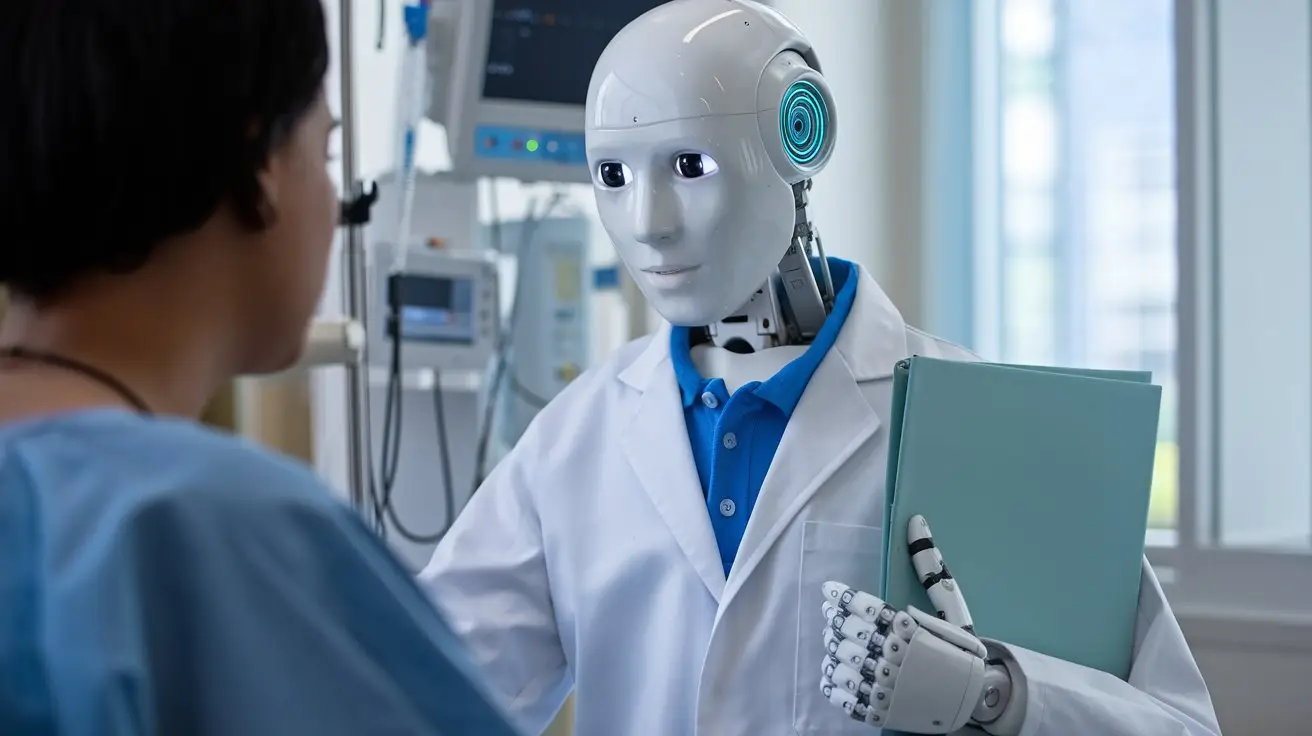Introduction
The healthcare industry is witnessing a monumental transformation with the rise of Artificial Intelligence (AI). From diagnosing diseases with pinpoint accuracy to personalizing treatments for individual patients, AI is reshaping how we approach healthcare. But what does this mean for patients, doctors, and the future of medicine? In this article, we’ll explore the revolutionary role of AI in healthcare and how it’s improving patient care in unprecedented ways.
What Is AI in Healthcare?
AI in healthcare refers to the use of advanced machine learning algorithms, data analytics, and automation to improve medical services and patient outcomes. It enables healthcare providers to analyze vast amounts of data, identify patterns, and make accurate predictions. Whether it’s in disease diagnosis, patient monitoring, or drug development, AI is becoming a game-changer across the board.
How AI is Revolutionizing Patient Care
AI is not just a buzzword; it’s actively improving the lives of patients and healthcare providers. Here’s how:
- Early Diagnosis and Detection
AI-powered tools like IBM Watson Health and Google’s DeepMind are enabling earlier and more accurate detection of diseases. For example, AI algorithms can analyze medical imaging like X-rays and MRIs to identify tumors or fractures that might be missed by the human eye. This means earlier interventions and better patient outcomes. - Personalized Treatment Plans
Gone are the days of one-size-fits-all treatment plans. With AI, doctors can analyze a patient’s genetic makeup, lifestyle, and medical history to recommend personalized treatment options. Companies like Tempus use AI to provide tailored cancer treatment recommendations based on a patient’s unique genetic profile. - Improved Patient Monitoring
Wearable devices such as Fitbit, Apple Watch, and biosensors are now powered by AI to provide real-time health monitoring. These devices can detect irregularities in heart rates, oxygen levels, and other vital signs, alerting both patients and doctors to potential health risks. This proactive approach can prevent complications before they become severe. - Drug Development and Clinical Trials
AI is speeding up the traditionally lengthy process of drug development. For instance, companies like BenevolentAI and Atomwise use AI to identify drug candidates and predict how they will interact with diseases. This not only reduces the time and cost involved but also accelerates the availability of life-saving medications. - Telemedicine and Virtual Health Assistants
Telemedicine platforms, powered by AI, allow patients to consult doctors remotely, improving access to care, especially in rural areas. Additionally, AI-powered virtual health assistants like Babylon Health and Ada Health provide 24/7 medical advice, helping patients make informed decisions about their health.
AI in Action: Real-World Examples
Several startups and established businesses are leveraging AI to automate and improve healthcare services:
- Butterfly Network: Revolutionizing ultrasound imaging with AI-powered portable devices, making diagnostics more accessible.
- Aidoc: Using AI to analyze medical imaging for faster and more accurate radiology results.
- Zebra Medical Vision: Providing AI solutions for early detection of chronic diseases like osteoporosis and liver disease.
Benefits of AI in Healthcare
The impact of AI on healthcare is transformative, offering numerous benefits to both patients and healthcare providers:
- Enhanced Accuracy: AI reduces human error in diagnosis and treatment planning.
- Cost Efficiency: Automating repetitive tasks saves time and reduces operational costs.
- Better Patient Engagement: AI-powered apps and devices encourage patients to take an active role in their health management.
- Improved Access to Care: Telemedicine and remote monitoring make healthcare more accessible to underserved populations.
Challenges of AI in Healthcare
Despite its potential, AI in healthcare faces several challenges:
- Data Privacy and Security
AI relies heavily on patient data, raising concerns about data breaches and misuse. Healthcare providers must ensure compliance with regulations like HIPAA and GDPR to safeguard patient privacy. - Ethical Concerns
Who is accountable if an AI system makes a wrong diagnosis? Addressing the ethical implications of AI in healthcare is crucial. - Integration into Existing Systems
Implementing AI solutions in hospitals and clinics requires significant investment and training, which can be a barrier for smaller healthcare providers.
How Different Industries Can Automate Healthcare with AI
AI isn’t just for hospitals and clinics; it’s transforming other areas of healthcare too:
- Pharmaceuticals: AI accelerates drug discovery and streamlines clinical trials.
- Insurance: Companies use AI to assess risks, detect fraud, and personalize insurance plans.
- Mental Health: Chatbots






